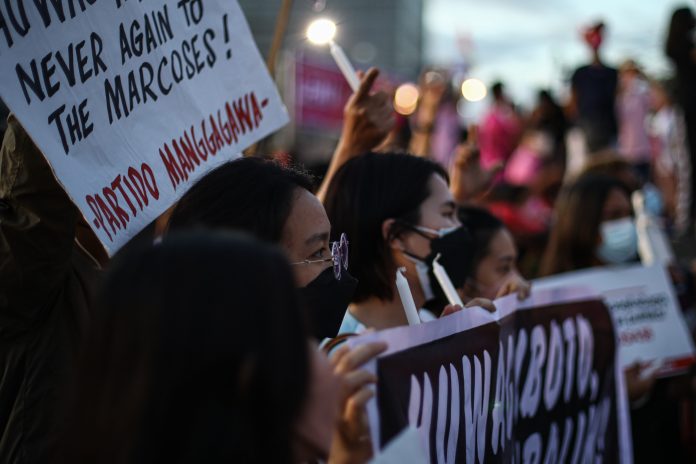Even as we commemorate the “EDSA People Power Revolution” this month, Filipinos seemed to have forgotten what it truly means and represents.
What used to be the symbol of victory for Philippine democracy is now being widely derided as a power play by the “dilawan (yellow)” political faction.
Democracy has been in a slow decline since 1986 with cases of systemic corruption, extrajudicial killings, and unjust treatment of marginalized communities among the biggest indicators.
The narrative is being rewritten to slowly take away the capacity of citizens to engage under our current systems.
How ironic is it that the freedom earned during the EDSA Revolution is now being used by agents of misinformation to denounce its very legacy?
Perhaps not as ironic as a Catholic preaching Bible verses and going to Sunday Masses yet endorsing candidates with poor track records and at best questionable characters.
To say that standing for the truth is well-established in Catholic doctrines is an understatement. That being said, the basis for preserving and strengthening democracy is also aligned within Church teachings, such as the Laudato Si’.
While Pope Francis’s landmark encyclical addresses the climate crisis and environmental degradation, it is also born out of Catholic social teachings, wherein democracy is central.
A vital part of democracy involves an actively-participating civil society based on the principle of power trickling down to local communities and institutions.
Also associated with faith-based philosophies is the argument that the market must function within a moral framework, which prioritizes the dignity of the person and the meaningful participation of all stakeholders in decision-making processes.
The Catholic Church vows to be neutral, but not apolitical.
The Catholic Bishops’ Conference of the Philippines said the clergy must push forward “the values and platforms that are in accord with church teachings, specifically the Catholic Social Teachings and Gospel values.”
For instance, among the groups that stood to the Marcos regime is the Catholic Church. The image of nuns in the frontlines of the protest movement remain among the most iconic.
The nuns, the priests, and other Catholics did not join the EDSA uprising to support the Aquinos. They joined the revolution to voice their disgust for the inhumane treatment of the opponents of a dictatorship.
They stood against an unprecedented level of corruption that only worsened social injustices and inequalities.
We need more Filipinos to stand and protect our democracy now more than ever.
We have a moral obligation to pursue activities within our capacities that reduce injustices and inequalities, especially among the most vulnerable. When the corrupt elite presses for disunity, we need to be agents for change.
The names may have changed, but our circumstances remain as dire, perhaps even worse, than 36 years ago. The imperative to protect our democracy must remain as strong, and translated to meaningful change.
John Leo is deputy executive director for programs and campaigns of Living Laudato Si’ Philippines.









